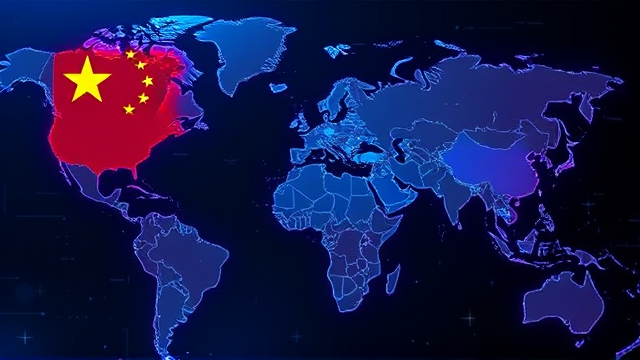China Sanctions US Defense Firms
In a calculated escalation of geopolitical tensions that analysts had been modeling for weeks, Beijing dropped a substantial retaliatory measure on Thursday, formally adding fourteen Western defense entities—predominantly U. S.-based firms—to its notorious unreliable entity list, an action that immediately severs their access to the vast Chinese market for trade and investment. This isn't merely a trade spat; it's a strategic counter-punch in the ongoing, high-stakes duel for technological and military supremacy, a move that risk assessment models would flag as significantly raising the probability of a further tit-for-tat spiral.The Ministry of Commerce's terse announcement belies the profound implications: by weaponizing its economic architecture in this way, China is signaling a hardened resolve to confront Western containment strategies head-on, effectively creating a bifurcated defense and tech ecosystem where companies are forced to choose allegiances. This scenario has historical parallels in the Cold War-era technology embargoes, but the scale and interconnectedness of today's global supply chains mean the ripple effects will be far more immediate and damaging, potentially crippling critical sub-component suppliers and stalling complex weapons programs that rely on a globally sourced, just-in-time manufacturing logic.We must consider the secondary and tertiary consequences: how will Lockheed Martin or a similarly sanctioned giant navigate the sudden void where specialized semiconductors or rare earth components once flowed from Chinese partners? The immediate financial impact on these firms may be calculable, but the strategic blow is to the integrated innovation pipeline itself, forcing a costly and time-consuming decoupling that neither side is fully prepared for. Furthermore, this action creates a dangerous new precedent for using economic blacklists as a primary tool of statecraft in security disputes, moving beyond the traditional theater of tariffs and into the core of national defense infrastructure.Looking ahead, the most probable scenario involves Washington responding with its own expanded entity list, perhaps targeting Chinese fintech or green energy giants, thereby locking both superpowers into a feedback loop of economic disentanglement that will redefine global trade blocs for a generation. The risk of miscalculation is now palpably higher; what begins as a sanctions list can quickly escalate into naval standoffs or cyber campaigns when the entities involved are so deeply enmeshed in national security. For corporate boards and investors, the message is clear: the era of a single, globalized market for high-stakes technology is over, and the new landscape will be one of fraught partnerships, redundant supply chains, and a constant, nerve-wracking assessment of political risk.
Latest News
The political theater outside Westminster Magistrates' Court unfolded with predictable precision Monday morning, as far-right organizer Tommy Robinson—real
31 minutes ago0 comments
In a move that echoes the gravest moments of the Cold War, Britain’s domestic intelligence service, MI5, has issued a stark and unusually public warning to the
1 hour ago0 comments
In a move that will undoubtedly be recorded by future historians as a pivotal moment in the long and tortured history of the Middle East, President Donald
1 hour ago1 comments
In a move that underscores the deeply personal and often cyclical nature of political influence, Labour has appointed Matthew Taylor, the architect of the
1 hour ago0 comments
In a high-stakes maneuver that recalibrates the geopolitical risk profile of the entire Levant, the long-anticipated prisoner and hostage exchange between
2 hours ago0 comments
The political battlefield erupted this weekend when George Finch, the 19-year-old Reform UK leader of Warwickshire county council and the UK's youngest council
2 hours ago1 comments
In a move that will undoubtedly be dissected by historians and political strategists for years to come, President Trump has formally signed a Gaza peace plan,
3 hours ago1 comments
In a move that will be scrutinized by historians for its geopolitical weight, the initial phase of a Gaza ceasefire deal was formally signed in Sharm
3 hours ago0 comments
It’s quiet here...Start the conversation by leaving the first comment.
